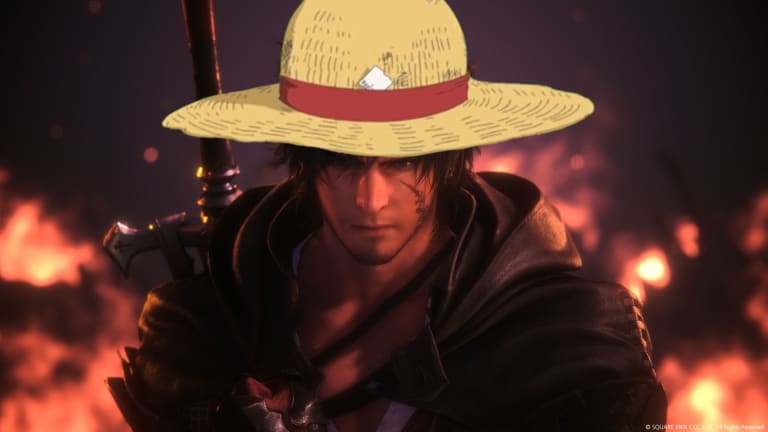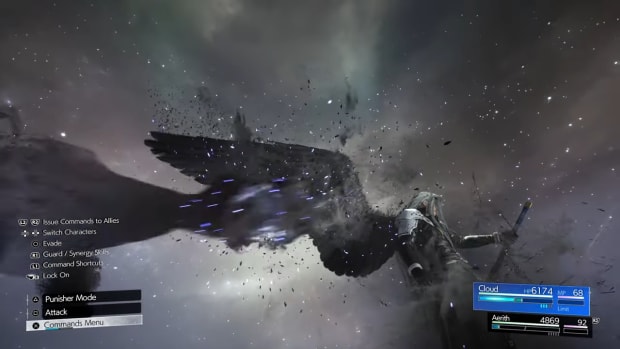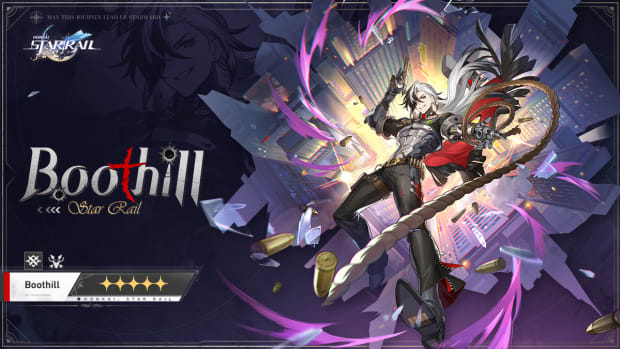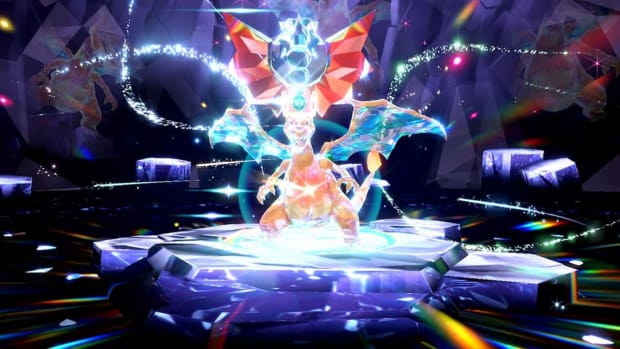
Final Fantasy XVI’s biggest inspiration isn’t Game of Thrones, it’s One Piece

I’m going to level with you: I don’t know what Game of Thrones is. I pretended I knew when Elden Ring came out, but in reality? I’ve got nothing. Something about a Lannister and debts, something else about dragons, and Winter is always coming.
That’s the sum total of my A Song of Ice and Fire knowledge, so other than the medieval European setting and the occasional allusion to incest, any deeper inspirations Final Fantasy XVI takes from Game of Thrones go straight over my head and out the window. But you know what I know a lot about? One Piece.
One Piece is one of the best-selling comic books of all time, only beaten by Superman, which has been running since 1938. Despite that popularity, you’ll struggle to find people in the street who are as aware of Luffy’s Straw Hat Pirates as they are of Batman or The X-Men.
So I see it as my solemn, sworn duty as a One Piece nerd to break down exactly how One Piece, the GOAT of manga, has influenced the latest installment in the most popular JRPG series in the world. Celebrated producer Yoshi-P has already confessed his love for One Piece in a Famitsu interview (translated by Artur), so these influences aren’t as much of a stretch as you might think, as I’ll explain…
Key spoilers for the ending of Final Fantasy XVI and several pivotal moments in One Piece to follow – you have been warned.
Brotherhood in FF16 and One Piece
One of the key themes in Final Fantasy XVI is brotherhood. Clive’s brother Joshua drives him throughout his story. First he seeks revenge on the mysterious second Fire Dominant that he believes killed Phoenix, he later discovers that Joshua was alive the whole time, and then finally Joshua dies in the climactic battle, not long after being reunited with his brother after years apart. The story begins and ends with Clive’s bond with Joshua, and it’s just as important as the Mothercrystals, the Eikons, and everything else.
One Piece also shares this theme, only protagonist Luffy has two people he calls his brothers, despite not being blood-related. They were together as children, matured together, and developed an unbreakable bond, and One Piece shares the same tragic story beats across those two characters.
One brother, Sabo, seemingly died when they were children, mirroring Joshua’s supposed death during the inciting Phoenix VS Ifrit fight – just without the Evangelion-style brutal ending. Sabo does return to the series much later, in a scene that is distinctly similar to Clive and Joshua’s real reunion.

Sabo and Joshua even share a similar ominous reintroduction.
Eiichiro Oda/Shueisha, Toei Animation & Square Enix
The other brother, Ace, suffers a tragic fate at the peak of one of the most intense arcs in all of One Piece, and is still generally regarded by fans to be the most tragic and emotional moment in a series filled with tearjerking scenes. The way Ace sputters his words as tears fill his eyes and blood drops from his lips is harrowing and heartbreaking, just as it is when it happens to Joshua at the end of FF16.
But the defining moment that cemented, in my mind, that Ace’s death inspired Joshua’s story arc and eventual fate, were his final words. “Thank you, Clive. For being my brother.” It’s a beautiful line, and it makes clear that Joshua’s bond with his brother was at the forefront of his mind in his final moments, thankful for the life he lived where he was shown love and compassion.
It would hit me a little bit harder if I hadn’t seen it before. Joshua’s untimely end comes at the hands of Ultima, who’d been trapped inside a cage made of Phoenix’s abilities, which was inside Joshua. He bursts out through Joshua’s chest, the force of it spelling Joshua’s end. You know who else got a hole in the chest? Why, our brother Ace.
Ace steps in front of a blow meant for Luffy, piercing a lava-filled hole straight through his chest. He collapses onto his brother, fully aware that his end was near. He bonded with Luffy because people said his bloodline was tainted, and he was rejected everywhere in life, but Luffy was just carefree and stupid enough not to care, so they latched onto one another.
Ace was shown love in a life that he was told he didn’t deserve, so his final words go out to not just Luffy, but to everyone he knew: “Thank you for loving me.” It feels just a little more impactful here than when it comes to the royal who is, sadly, a bit two-dimensional by comparison.

Ace had some strikingly similar and impactful words to say in his final moments, too.
Eiichiro Oda/Shueisha, Toei Animation
In my mind, the comparisons between the brotherly relationships in One Piece and Final Fantasy XVI are easy to make, but if that hasn’t convinced you, I have more.
Fire, as a symbol
Clive and Joshua are both Fire Dominants, with Joshua being the Dominant of the Phoenix, and Clive later awakens to discover that he holds the second Eikon of Fire, and is the Dominant of Ifrit.
When the brothers are reunited in battle, the two Fire Eikons can battle together, with Phoenix assisting Ifrit in the air, and later the two even combine, Clive absorbing Joshua’s Phoenix Dominant, and becoming the ultimate Fire Eikon. Fire is also partially symbolic, showing Clive’s drive, and representing the undying flames of their bond. It’s nice.
So, One Piece has Devil Fruits, right: if you eat a Devil Fruit, you get a power in exchange for losing your ability to swim in a world that is covered in even more water than our own. Luffy is made of rubber, another character is made of and can control sand, and another has the ability to eat and utilize souls – the powers are diverse, is what I’m trying to get at.
It just so happens that Ace, Luffy’s brother that suffered a tragic end, had eaten the Flame Flame Fruit. There’s a somber moment where a piece of paper representing Ace’s life essence – a Vivre Card – burns away, showing us his flames finally dying out as he utters those heartbreaking final words and collapses to the ground with a smile on his face.
Fire, again, is key, becoming a symbol for the emotional state of the characters and the flow of the story. The Vivre Card even resembles the final burning Phoenix feather that Clive catches just before his final confrontation with Ultima.

The brothers reach out to that which symbolizes the life of their sibling.
Eiichiro Oda/Shueisha, Toei Animation & Square Enix
But Devil Fruit abilities don’t disappear when a user dies – instead, a random fruit somewhere nearby will magically turn into that Devil Fruit, allowing the ability to live on.
When Sabo reappears later in the story, he does so expressly to eat the newly emerged Flame Flame Fruit, symbolically carrying forward the will of his late brother. The triumphant moment where Sabo takes a bite and flames erupt from his body is absurdly satisfying, and almost feels like a genuine revival of a beloved character.
It’s a very similar moment to what follows Joshua’s death, where Clive absorbs Phoenix’s abilities, and once again becomes the ultimate Fire Eikon, Ifrit Risen.
It’s a moment that feels bittersweet, but like a victory, as if Joshua continues to live on inside Phoenix, which is now one with Clive’s Ifrit Risen. The flames of one deceased brother are passed onto the next, along with their will and intentions.
That’s one final note, the will of our characters.
Will and ambition
I’ll be quick with this one because it, admittedly, feels like the flimsiest comparison to make, but I’ll make it anyway.
FF16’s final villain, Ultima, is obsessed with will. Ultima fancies himself as a god, a creator of all the life in FF16’s world, and it’s easy to interpret his rants about will as the free will of beings to rival their creators – the ultimate JRPG trope, when you think about it.
Clive’s Ifrit, or Mythos, or Logos – whatever his sacred special ability is called – seemingly drives him forward and enables him to overcome Ultima. As Clive beats down Ultima, the god states: “I sense… more here than mere will. Is this Logos?” Will is clearly a big factor in what makes Clive scary, on top of his mythical abilities. I really should’ve read that Real-Time Lore for this bit.
As it turns out, yes, One Piece has a similar deal going on. When it first introduced the series’ “haki” abilities, it was translated in a variety of ways, and while ambition, aspiration, or will, are all appropriate translations, the localizers have settled on just using Haki in the official English versions of the story. The way it is treated in the story, after all, is closer to a magical ability, like Dragon Ball’s Ki or FF’s traditional mana, rather than an abstract concept.

Haki can be translated as will, and is a key magic system in One Piece.
Eiichiro Oda/Shueisha, Toei Animation
From my perspective, Haki is both a magical ability and an abstract concept. The ambitions of the user, and how lofty those ambitions are, determine the strength of one’s Haki, or will. When Ultima questions Clive’s will, he’s baffled by both the strength of Clive’s abilities as Logos, Ifrit Risen, and the strength of his ambition that drives him forward to recreate the world into one Ultima can barely fathom – something equal.
Right, I just saw Ultima likes ranting about will and figured I could loosely tie it into One Piece, okay?
One Piece inspired Final Fantasy XVI – fight me
That’s it, those are all of my arguments, I’ve got nothing left. Listen, we know Yoshida is a big One Piece fan – it is the biggest manga in the world, after all, chances are he would be – and through my eyes, the tainted eyes of a man that has suffered intense brain rot, it’s clear to see how One Piece has influenced the direction 16’s story took. The setting is definitely Game of Thrones, I think. Probably.
If you’ve gone through both the One Piece wringer and Final Fantasy XVI, let me know if I’m right. Which I am. Either that or this is a case of a man who has only read One Piece saying “getting a lot of One Piece vibes from this” after experiencing his second-ever story.
But would a man that deranged write nearly 1,800 words comparing the two? Didn’t think so.












